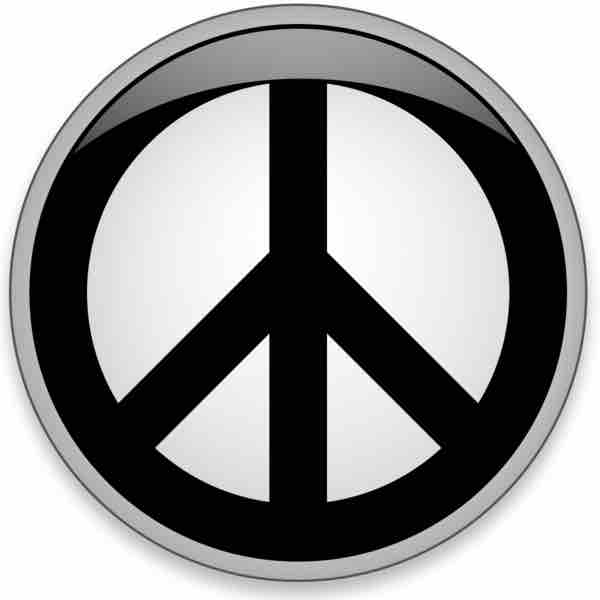Peace is a state of harmony characterized by the lack of violent conflict or war. Commonly understood as the absence of hostility, peace also suggests the existence of healthy or newly healed interpersonal or international relationships, prosperity in matters of social or economic welfare, the establishment of equality, and a working political order that serves the true interests of all. In international relations, peacetime is not only the absence of war or conflict, but also the presence of cultural and economic understanding.
Peace Movements
A peace movement is a social movement seeking to achieve ideals like the ending of a particular war (or all wars), while also minimizing inter-human violence with the goal of achieving world peace. Means to achieve these ends usually include advocacy, non-violent resistance, diplomacy, boycotts, moral purchasing, supporting anti-war political candidates, demonstrations, lobbying to create legislation, and pacifism.
Pacifism
Pacifism is the opposition to war or violence as a means of settling disputes or gaining advantage. Pacifism covers a spectrum of views ranging from the belief that international disputes should be peacefully resolved. Other views of pacifism include:
- calls for abolition of the institutions of the military and war
- opposition to any organization of society through governmental force (anarchist or libertarian pacifism)
- rejection of physical violence to obtain political, economic or social goals
- opposition to violence under any circumstance, including defense of self and others
Pacifism may be based on moral principles or pragmatism. Principled pacifism holds that at some point along the spectrum from war to interpersonal physical violence, such violence becomes morally wrong. Pragmatic pacifism holds that the costs of war and inter-personal violence are so substantial that better ways of resolving disputes must be found. Pacifists in general reject theories of a "just war. "

Peace Sign
The peace sign, one of several symbols used to represent peace